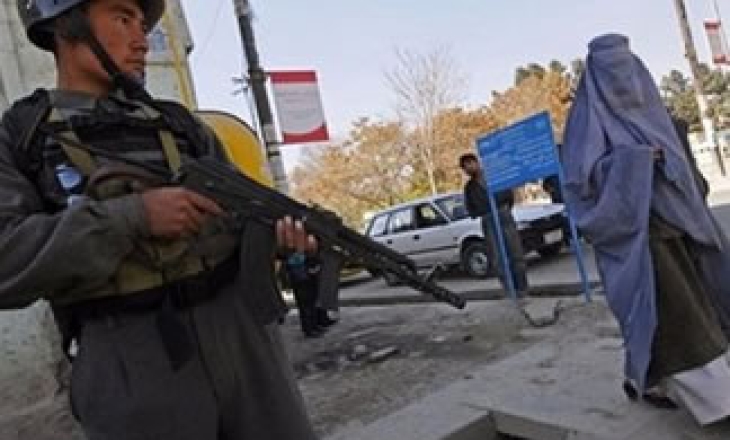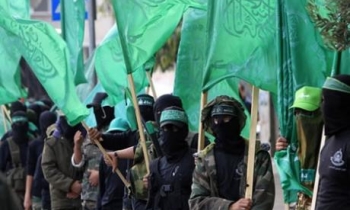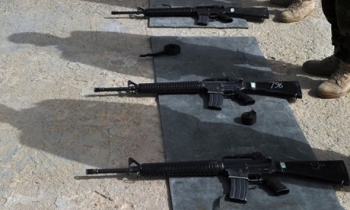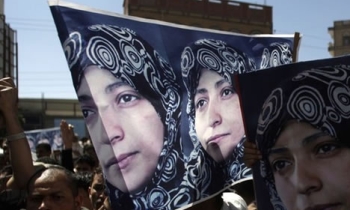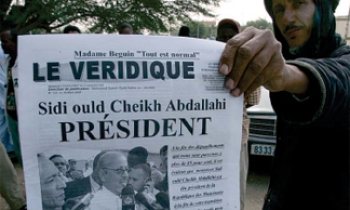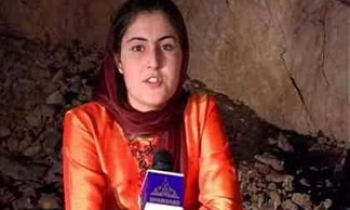Afghan abductors kept a Canadian journalist captive, sometimes blindfolded and chained, in a cave for four weeks before she was freed, the reporter said Sunday. Mellissa Fung, a journalist with the Canadian Broadcasting Corp in Afghanistan, was freed on Saturday after being abducted a month ago near capital Kabul.
Fung was the second abducted foreign journalist to be released in two days. On Friday, a Dutch journalist kidnapped just outside Kabul was freed unharmed after nearly a week in captivity.
Fung was abducted by gunmen while on her way to a refugee camp on the outskirts of Kabul on October 12 and then taken to the west of the country. In a video released Sunday by the National Directorate of Security (NDS), which recovered her on Saturday, Fung said she was kept in a hole dug in the ground, and that her arms and legs were placed in chains during her last week of captivity in the western province of Wardak.
In a statement late Saturday, CBC/Radio Canada said Fung was freed at around midday Toronto time (9:30 p.m. in Afghanistan) and was now at the Canadian embassy in Kabul, where she was to undergo medical examinations. The initial signs were that she was in good health, the statement added.
Canadian Prime Minister Stephen Harper said no ransom was paid to her abductors. Three men were arrested but NDS spokesman Sayed Ansari said they were only mid-level players.
Some details, according to Agence France-Presse (AFP) of what she said: [Link]
"They kept me blindfolded... not all the time," Fung was seen telling intelligence chief Amrullah Saleh in the offices of the National Directorate of Security (NDS) hours after her release. "They dug a small hole and there was a tunnel and a cave... The cave was very, very small," she said, adding she could barely stand up.
"For the first three weeks they had somebody with me the whole time, watching me, so they did not chain me. The last week, they left me and chained me," she said. "They never hurt me," she added. Fung said she was given packets of biscuits and juice once a day for food, but had no water to drink.
Major western news organisations had agreed to a news blackout until Saturday, when Fung was finally released, news agency Canadian Press reported. The decision to hold off on reporting about the abduction in Afghanistan presented an ethical dilemma for the news media.
Indeed, journalists would normally be taken to task for suppressing information and not reporting on a major story, acknowledged John Cruickshank, the publisher of CBC News. [Link]
"Refusing to report a story is one of the most difficult and unnatural decisions that any journalist faces," Cruickshank told a news conference in Toronto. But he strongly defended the CBC's decision to appeal to other media organizations for a news blackout.
"It's unlikely that I'd be briefing you today with this delightful news of Mellissa's safe release if it had not been for the co-operation of news organizations around the world," he said. "Our journalistic standards are clear. The first priority is the safety of the victim."
Cruickshank said the difficult choice of refraining from reporting is "unavoidable" when public scrutiny can "directly imperil the safety of an innocent victim of a crime such as this." "We must put the safety of the victim ahead of our normal instinct for full transparency and disclosure." He said, "I have no doubt that it would have been much more dangerous and difficult for Mellissa if our efforts to secure her release had been conducted in the full glare of international media attention."
“We are extremely relieved by the release of this young journalist, who seems to be in good health despite her ordeal,” said Reporters sans Frontières (RSF), which had been in contact with the Canadian authorities and her employer since her abduction. “We are nonetheless very worried by the recent kidnappings of journalists in Afghanistan, where the security situation has deteriorated dangerously.”

